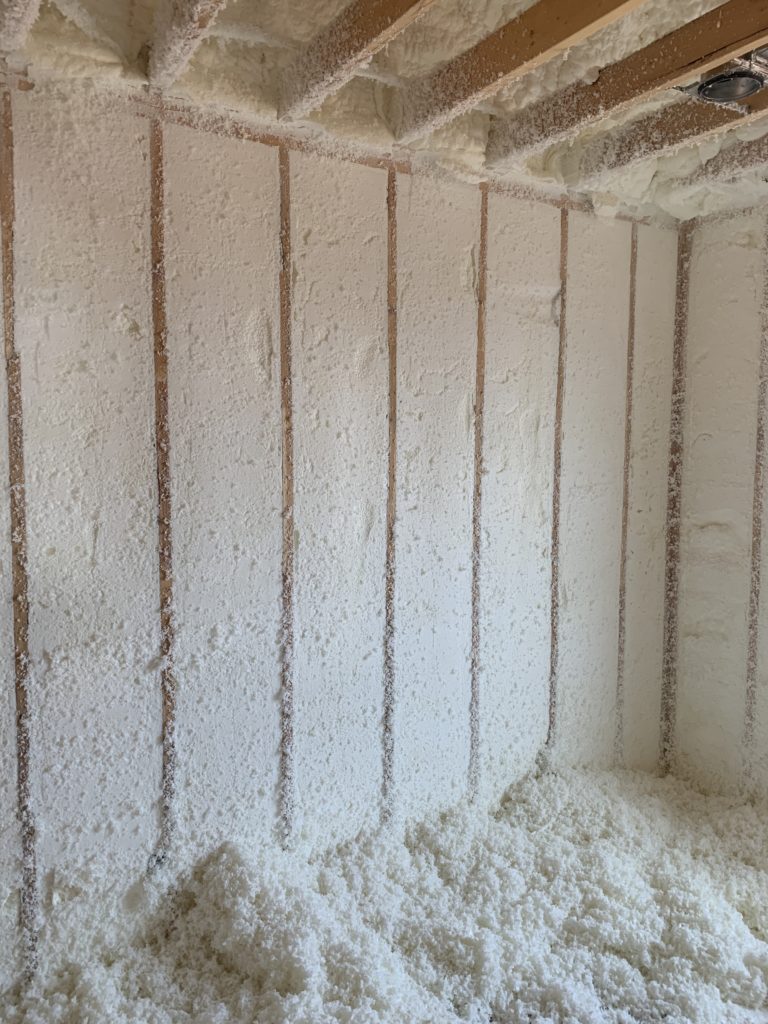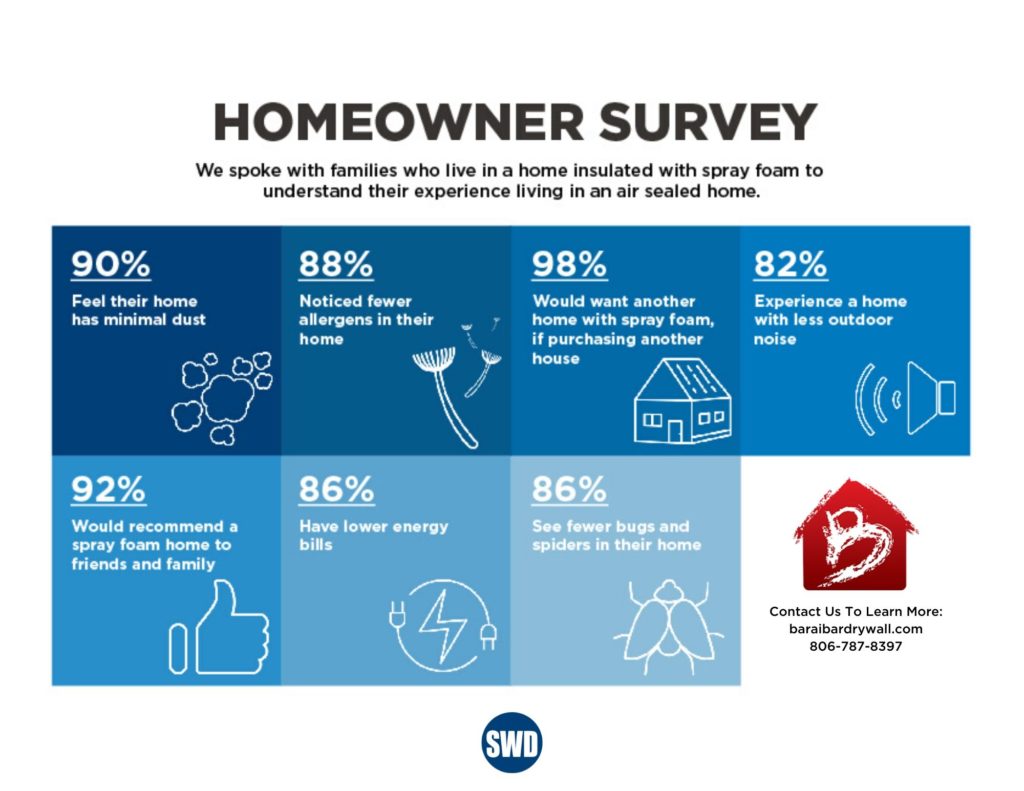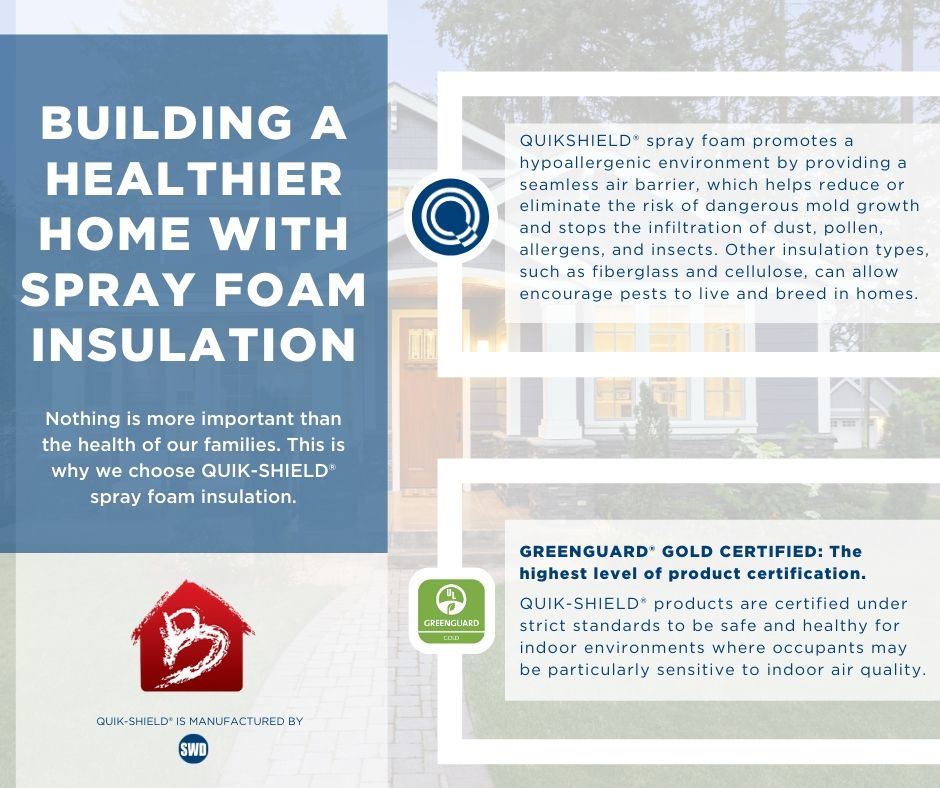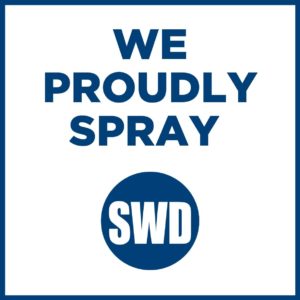Spray Foam Insulation
Why Spray Foam Insulation In West Texas & Eastern New Mexico?
Spray polyurethane foam (SPF), a type of blow in insulation, is spray-applied plastic that is extensively used to insulate buildings and seal fractures and gaps, making the structure more energy-efficient and comfortable. SPF insulation is known to withstand heat transfer extremely well, and it provides an extremely reliable option in minimizing undesirable air infiltration through fractures, joints, and joints.
If you’re wanting to insulate a new building, or update an older one, the benefits of spray foam insulation are worth looking into.

Although this kind of insulation can be more expensive on the front end than other types of insulation, the benefits of foam spray blow in insulation can pay for itself in saving you money on energy costs.
Some of the primary benefits of using a blow in, spray foam insulation include:
- Savings on energy bills
- Reduction of bugs and pests found in the home
- Reduction of noise from outside the home
Among the biggest advantages of foam spray insulation is it’s durability because of how it becomes a part of the structure of the house. Once the foam is applied into cracks, walls, and ceilings, it broadens and dries quickly while blocking air and water. Foam insulation isn’t just a blockade for air and water, however for heat and cold too. In addition, since the foam fills the cracks, it secures the attic from water even if a storm damages the roofing. Depending upon where you live, foam insulation can reduce your heating and cooling expenses.
Open Cell vs Closed Cell Spray Foam Insulation
There are 2 kinds of foam insulation: open-cell foam and closed-cell foam. Open-cell foam is lighter and less thick, however has a lower R-Value. Closed-cell foam is denser and has a higher R-Value. Both types of spray foam are made of a material with stronger thermal resistance and will be more reliable at keeping heat inside throughout the winter and outside throughout the summer season.
Open-cell is the more affordable version, and it’s better at blocking noises, while a closed cell is thick, and it works much better at keeping air and water from permeating the walls. Open cell insulation tends to be more spongy, due to the air that gets in the cells. Due to its density and firmness, closed cell insulation can actually enhance the structure of your walls. Every structure is built to a code that requires the walls to fulfill a minimum load bearing requirement to hold the building together. However, this minimum building code standard does not factor in, mother nature.
Interested in learning more about the type of spray foam insulation we use at Baraibar Drywall? Be sure to check out or download our Spray Foam Insulation Guide below from our primary spray insulation provider, SWD.

Savings On The Cost Of Energy Bills
You can pay 40% less of your heating & cooling costs. The U.S. Federal government’s energy laboratories estimate that cracks and openings squander up to 40% of every home heating & cooling dollar. You can stop this waste by sealing fractures and openings in your house with SWD spray foam insulation. The individual costs will vary depending on a number of factors including age and size of the home or building.
For example, a small 1,500 sq. ft. house in New Mexico may see estimated $489 in annual cost savings while a bigger 4,750 sq. ft. house in Missouri may see approximated yearly savings of up to $1,525. Once again, it will vary in between state, home and other variables. The expense of spray foam insulation can differ substantially due to a variety of factors. However, whether you’re a high volume contractor or an individual homeowner, potential cost savings from energy bills, can make the upfront costs of foam insulation small in comparison.
Reduction of Pests & Bugs
If you’re thinking about spray foam insulation for your house, you might wonder if it will keep animals or bugs out of your attic, crawl area, or home in general. The most typical locations for insects like rodents, bats, and even bugs to get into a house is either through the crawl space and rim joist or through openings in the attic.
Its ability to expand makes it more efficient at filling even the tiniest spaces or crevices. Due to the fact that spray insulation is a synthetic product that hardens, it does not bring in bugs and rodents in the very same method that standard insulation can. However, insects such as carpenter ants and termites have the capability to chew through spray foam insulation in some situations.
Insulation in your house will not resolve a pest issue that currently exists, however it can assist to prevent a future insect problem. If the critters are already in your house, it is best to employ an exterminator to serve them an expulsion notification prior to you have actually foam insulation installed.
Reduction of Outside Noise
The qualities that make it an outstanding thermal barrier also produce disruptive resonance and its adhesion couples the wall components together increasing noise transfer.
There are several types of noises we attempt to manage in our offices or homes. Airborne and impact sounds are the two we typically try to control with insulation. Soundwaves are vibrations that travel through the air till they encounter a barrier wall, tree, window, person, and so on. The frequency wave vibrates its way through the item and continues.
Barriers do not typically work on all frequencies, absorbing some but not others. Radio frequency sounds from drums, and bass instruments take a lot to decrease. We’ve all felt them reverberate through walls. Mid-range and high frequencies tend to be much easier to silence. Impact sounds take place when something hits a surface inside or outside a structure.
Both open cell and closed cell spray insulation can reduce high and low frequency noises, but open cell has a higher noise reduction capability.

In addition to the many benefits listed above, spray foam insulation can help make your home or business a safer environment, from a health standpoint.
Spray foam insulation is an excellent way to reduce pollen and allergens that get through the walls and ceilings. Not to mention the fact that becuase of it capabilities as a moisture barrier, it can help reduce opportunities for mold introduction or growth in the building.
Because spray foam can reach deep into cracks and crevices, the air cannot penetrate the walls, as it does with other types of insulation.
By reducing amount of outside air getting in, you reduce the number of allergens that get into the building. This can help those who suffer from allergies or respiratory conditions. Less air getting in, means less allergens and pollutants, which in turn can mean fewer respitory issues and doctor visits.
Spray Foam Insulation has become an important part of Baraibar Drywall’s business. We are expert contractors in spray foam insulation, using SWD products as our primary choice. Similar to our drywall business, our focus is primarily working with residential home builders and commercial construction contractors in new construction. However, we do some individual customer work on the insulation side of our business. Whether you’re a property owner who requires more attic insulation or a contractor looking for a commercial insulation specialist, we can help complete your job on the South Plains of Texas or Eastern New Mexico.
At Baraibar Drywall, we specialize in serving property owners, professionals, facility managers, and residential or commercial property supervisors. We serve within an 80-mile radius Denver City, TX. However, we can do work in other parts of the Texas Panhandle or Eastern New Mexico if the spray foam or insulation tasks are bigger in scale.
Insulation plays an important part in the ongoing cost of maintaining comfort in a home or business. It’s estimated that around 90 percent of single-family houses in the U.S. do not have enough insulation, according to 2015 research by the North American Insulation Manufacturers Association. Not only does poor insulation waste energy and boost energy expenses for these buildings, it likewise disrupts your family’s convenience level by permitting drafts and uses little barrier to your home’s CO2 emissions.
Spray Foam Insulation

Spray foam insulation can be used in locations where there are no wall cavities to contain other kinds of insulation on concrete slabs or unfinished walls. When sprayed on the surface, the foam expands to fill bypasses and it seals leaks and gaps inside existing walls and prevents air seepage. It can be utilized in small quantities to fill tight spaces while increasing structural stability and providing sound insulation. Liquid polyurethane, on the other hand, can be sprayed into the cavity of the wall, where it then expands and solidifies into a strong foam.
The foam can shrink while curing if not used at the right temperature level. Many spray foam products require protection from sunshine and solvents and most can launch harmful fumes if they burn. The R-Value (insulation effectiveness) of some types of spray foam insulation products can lessen over time.
Our spray foam insulation helps keep hot or air-conditioned homes or industrial buildings from dripping out through walls, roofs, and floors. Spaces and leaks within your house or commercial structure are the main causes of costly cooling and heating costs. Spray foam insulation helps to fill those holes, cracks, and areas, so that your house or business structure stays well insulated during the summer season and cold weather.
Spray foam is available in two constructions: open-cell foam or denser closed-cell foam. Closed cell foam has the greatest R-value of any insulation, around R-6.2 per inch, but can be costly; open-cell foam insulation values are around R-3.7 per inch of thickness.
Baraibar Drywall LLC is a registered, licensed, bonded, and insured contractor, meeting the contractor license requirements to work in New Mexico. Our license number is License #401180. The requirements for drywall and insulation contractors in Texas are less stringent, so we easily meet the requirements for the State of Texas.

